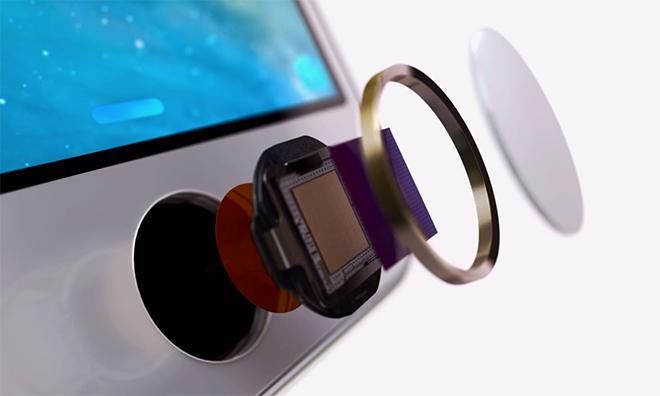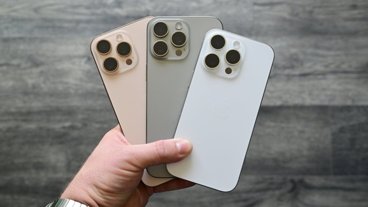Mobile device manufacturers may finally have a reason to evaluate sapphire on an equal footing with traditional strengthened glass, as a new method of dealing with sapphire is said to have lowered its reflectivity significantly.
The reflectivity of this new sapphire material is "much lower than glass," according to DisplayMate. It is not a coating, the firm said, but rather a "new sapphire technology" apparently integrated into the material itself.
"This new production ready low reflectance enhanced sapphire will undoubtedly be one of the major new advancements for smartphone displays in the very near future," DisplayMate chief Raymond Soneira said in a release.
Lowering the reflectivity of a smartphone display would allow the device to operate with a less-powerful backlight, improving battery life. Visibility in bright locations would also be bolstered.
It would have to be a major improvement for companies to switch away from Gorilla Glass, which remains more shatter-resistant and less costly, on a large scale. Apple's iPad Air 2, with its glass display and antireflective coating, already boasts the lowest reflectance of any tablet or smartphone DisplayMate has ever tested.
While Apple was widely rumored to be considering sapphire for its iPhone 6 series — due in large part to the now-defunct agreement with GT Advanced Technologies to jointly operate a major sapphire plant in Arizona — Â more recent reports have said that sapphire was "never targeted for the iPhone 6 or iPhone 6 Plus."
The company does use sapphire display covers in some versions of its forthcoming Apple Watch, and relies on the material for the camera lens cover and Touch ID sensor cover in the iPhone line. Apple also holds a variety of patents surrounding manufacturing processes for both sapphire and ion-strengthened glass.
 AppleInsider Staff
AppleInsider Staff







 Charles Martin
Charles Martin


 Wesley Hilliard
Wesley Hilliard
 Stephen Silver
Stephen Silver
 William Gallagher
William Gallagher

 Marko Zivkovic
Marko Zivkovic








6 Comments
Transparent titanium FTW.
[quote name="SockRolid" url="/t/184632/enhanced-sapphire-said-to-lower-reflectivity-boost-suitability-for-smartphones#post_2670801"]Transparent titanium FTW.[/quote] With a solar cell sub layer. And underlaid with a peizo electric matrix to support force touch input and haptic response. Oh, and a full display CCD layer to support fingerprint and face recognition and eye tracking.
Transparent titanium FTW.
But no red shirt...
[quote name="AppleInsider" url="/t/184632/enhanced-sapphire-said-to-lower-reflectivity-boost-suitability-for-smartphones#post_2670788"]It would have to be a major improvement for companies to switch away from Gorilla Glass, which remains more shatter-resistant and less costly, on a large scale. Apple's iPad Air 2, with its glass display and antireflective coating, already boasts the lowest reflectance of any tablet or smartphone DisplayMate has ever tested.[/quote] That link is interesting: "With the new Anti-Reflection screen coating on the iPad Air 2 its Reflectance is just 2.5%, by far the lowest we have ever measured for any Tablet or Smartphone. The previous record holders all had about 4.5%, the minimum possible for cover glass all by itself. The much lower Reflectance improves screen readability, image contrast, and color saturation in ambient light by almost 2:1, a major innovation and enhancement for mobile displays. Anti-Reflection coatings are used in just about all high-end lenses and related optics. The problem is that most coatings scratch easily and show fingerprints easily. Apple (or more likely one of its suppliers) has found something that doesn't scratch easily or show fingerprints and works well on Tablet and Smartphone touch screens. Presumably Apple's future products will have the same Anti-Reflection coatings as well - so forget about Sapphire on future iPhones because if you apply an Anti-Reflection coating to Sapphire, which has a very high 8% Reflectance all by itself, you lose its very high scratch resistance because the softer coating is now on top." If this new sapphire doesn't bring reflectivity into a similar range as Gorilla Glass with the coating, it would be wasted effort but if it does, they'd be able to skip the process of adding the coating. They need to be able to ramp volume up to hundreds of millions of units though.
[quote name="Marvin" url="/t/184632/enhanced-sapphire-said-to-lower-reflectivity-boost-suitability-for-smartphones#post_2670993"] That link is interesting: "With the new Anti-Reflection screen coating on the iPad Air 2 its Reflectance is just 2.5%, by far the lowest we have ever measured for any Tablet or Smartphone. The previous record holders all had about 4.5%, the minimum possible for cover glass all by itself. The much lower Reflectance improves screen readability, image contrast, and color saturation in ambient light by almost 2:1, a major innovation and enhancement for mobile displays. Anti-Reflection coatings are used in just about all high-end lenses and related optics. The problem is that most coatings scratch easily and show fingerprints easily. Apple (or more likely one of its suppliers) has found something that doesn't scratch easily or show fingerprints and works well on Tablet and Smartphone touch screens. Presumably Apple's future products will have the same Anti-Reflection coatings as well - so forget about Sapphire on future iPhones because if you apply an Anti-Reflection coating to Sapphire, which has a very high 8% Reflectance all by itself, you lose its very high scratch resistance because the softer coating is now on top." If this new sapphire doesn't bring reflectivity into a similar range as Gorilla Glass with the coating, it would be wasted effort but if it does, they'd be able to skip the process of adding the coating. They need to be able to ramp volume up to hundreds of millions of units though.[/quote] I have always suspected ?Watch is a far more likely candidate for sapphire crystals for the simple reason we shove our hands and arms into places that damage them and wave our arms around a lot in ways we wouldn't holding an iPhone or iPad. The velocity with which I can smash a watch face into something is quite high or the way I can grab for something in between some rocks has lead every watch crystal I have ever owned to be scratched up within two years. Reflectance is not as critical either as we have the ability to move our heads and wrists, not to mention orient our entire bodies most times for optimal viewing of a watch far more easily that any phone or tablet.